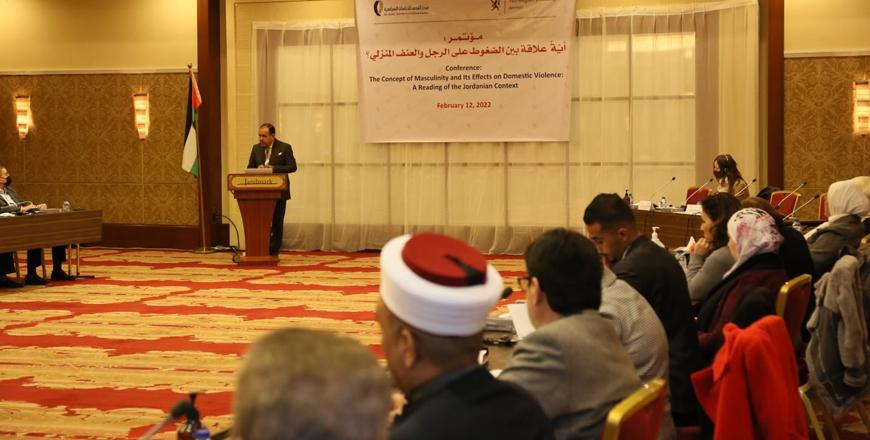You are here
Roundtable explores regional perceptions of sexual harassment, role of legislation
By Rana Husseini - Dec 07,2019 - Last updated at Dec 07,2019
AMMAN — Jordanian and Arab women groups and politicians on Saturday called for stronger and clearer legislations that would penalise sexual harassment in the Arab world.
The call came during a roundtable discussion on Arab Women in the Face of Violence and Harassment Against Women: Pioneering Initiatives, organised by the Quds Centre for Political Studies (QCPS) and supported by the Norwegian embassy in Amman.
The one-day event, which was held in Amman, gathered representatives from Jordan, Palestine, Lebanon, Egypt and Tunisia.
Jerash MP Wafa Bani Mustafa said that it is “extremely important” to introduce legislations that protect victims of sexual harassment and find better ways to encourage women to report abuse cases.
“We also need to study ways to implement a special strategy that would address this problem and find solutions to tackle it on all levels as well as empowering all the entities that deal with this problem,” Bani Mustafa said.
Director of the QCPS Oraib Rantawi told The Jordan Times that the roundtable discussion was held based on a study they conducted on sexual harassment “which came up with some difficult and worrying results”.
The study revealed that 62 per cent of those surveyed were subjected to some form of harassment in their lives, while around 40 per cent of those surveyed denied that this phenomenon existed, according to Rantawi.
The QCPS director added that the event aimed at shedding more light on the problem of “sexual harassment that mostly targets women in our part of the world and discuss means of ensuring a safe environment for women at work and elsewhere”.
“The idea was to invite women groups and activists from our area to learn from experience and come up with some recommendations that would help combat this wide-spread phenomenon,” Rantawi said.
Rantawi added that the workshop also aimed at encouraging various society sectors and individuals to combat this problem and raise awareness about it, as “there are still some people who do not believe that sexual harassment exists in Jordan”.
Among the main findings, according to Rantawi, was the need to introduce laws that would penalise perpetrators and to raise awareness about this problem in society.
Also addressing the gathering was Head of the Communication and Advocacy Unit at the Jordanian National Commission for Women Ashjan Ananzeh, who spoke about a study conducted by her organisation in 2017.
The study, according to Ananzeh, focused on sexual harassment at work, at public and educational institutions, at home, on the street and through the Internet.
Around 88 per cent of those surveyed were subjected to verbal harassment and obscene gestures in the street, while 68 per cent stated that they were subjected to physical harassment, Ananzeh added.
Meanwhile, Chairwoman of the Board of Trustees of the Egyptian HarassMap Foundation Inas Hamdi said her organisation was established in 2010 to specifically address the sexual harassment problem in Egypt.
“We did a study that indicated that 95 per cent of women are subjected to some form of sexual harassment, while 77 per cent of the men surveyed admitted they had harassed women either verbally or physically,” Hamdi told the gathering.
She added that “some people in Egypt told us that sexual harassment of women is okay and is a simple matter. They believe that men basically did not commit any offence”.
On the other hand, Hamdi added, some people assume that the individual who is harassed is expected to accept this form of violation against her or his rights.
“Many women are reluctant to file a complaint at a police station because for many people, sexual harassment is equivalent to rape and they prefer to avoid such a scandal than come forward and tell the authorities what happened,” Hamdi added.
Related Articles
AMMAN — A local study on the masculine roles and values in Jordanian society found a strong relationship between masculine gender roles and
AMMAN — Confronting the phenomenon of sexual harassment in Jordan is a matter of high priority which needs to be addressed on a national lev
AMMAN – Over 50 per cent of Jordanian women and around 73 per cent of Syrian refugee women who sought legal consultations for workplace issu















